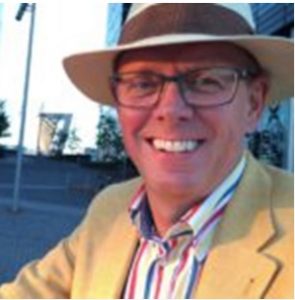Administration of justice is effective, judge says
 TILBURG – The administration of justice in the Caribbean part of the Kingdom is just as efficient as it is in the Netherlands, Judge Frank Spreuwenberg says in an interview with Rik Haverman on Caribisch Netwerk. Spreuwenbeg worked as a judge for the Common Court of Justice in the Netherlands Antilles from 2007 to 2011. But he adds that there are also differences that are due to the small scale of the islands.
TILBURG – The administration of justice in the Caribbean part of the Kingdom is just as efficient as it is in the Netherlands, Judge Frank Spreuwenberg says in an interview with Rik Haverman on Caribisch Netwerk. Spreuwenbeg worked as a judge for the Common Court of Justice in the Netherlands Antilles from 2007 to 2011. But he adds that there are also differences that are due to the small scale of the islands.
During the past summer, Spreuwenberg was briefly back as a judge in the Caribbean after he left seven years earlier. He discovered again that especially in a small community corruption comes to light faster; that the courtroom is often used as a political arena; and that the debate about anonymizing of suspects in the media is still relevant.
In 2007 Spreuwenberg suggested to report only the initials of suspects and convicts in the media. The Antillean media reacted negatively to the idea. The Today newspaper – and now stmaartennews.com – use(d) first names followed by an initial for suspects and full names once a suspect has been sentenced. Spreuwenberg is not happy that nothing much has changed since 2007.
“Many newspapers still publish the names of those involved in criminal cases. An often used argument is that, due to the size of the population, those names will become public anyway. I did not think that was right and I still don’t think that is right. If someone if acquitted later on, he has been pilloried by the media in the meantime.”
Another important point of attention is that politics are never far away from the courtroom, Spreuwenberg says. “I have done a lot of rectification cases. Some Caribbean politicians are saying all kinds of everything about each other in the media.”
“This mud slinging results quite often in a call for a legal rectification. That happens a lot less in the Netherlands. The parliament is the main political arena, not the courtroom.”
And than there is corruption. Last summer former Prime Minister of Curacao Gerrit Schotte was sentenced to 3 years of imprisonment for fraudulent practices. This august, Schotte and his partner Cicely van der Dijs are in court again, because the prosecutor’s office wants to seize 2 million Antillean guilders (around $1.1 million) from the couple. The case confirmed for many in the Netherlands the stereotype image of corruption in the Caribbean.
Spreuwenberg immediately takes a stand against that perception. “According to me corruption does not occur more frequently in the Caribbean part of the Kingdom, but I do think that it becomes public faster. There are fewer people on the islands than there are in the Netherlands; that’s why there is more transparency.”
“You are much less anonymous on the islands than you are in the Netherlands. The feeling that everybody knows everybody is strong and it is known what you are up to every day. It was for instance clear pretty fast what my role n the community was,” Spreuwenberg says. He agrees with attorney-general Roger Bos, who said in a recent interview with Caribisch Netwerk: “I am much more independent that somebody from here who becomes attorney-general at age 55 and has been building relationships all his life.”
“The population of the Caribbean is much smaller than the population of the Netherlands.. Appointing external judges therefore provides a more objective administration of justice. It stands outside the existing networks of family and acquaintances. The Common Court of Justice is because of this a beacon of peace and continuity that does its work unbiased, outside of the island-troubles.”
Contrary to Roger Bos, Spreuwenberg sees this as an unintended side effect. “There are Dutch judges in the Caribbean because there are not enough local candidates. During the past decades it has proven difficult to recruit Caribbean judges.”
“Many people who are fit for the bench take a job in the private sector, they work as an attorney or they stay behind in the Netherlands after an internship. That is a pity because it would be better if more children of the soil would engage. That strengthens the trust in the administration of justice.”
Photo caption: Judge Frank Spreuwenberg. Photo Caribisch Netwerk.






















